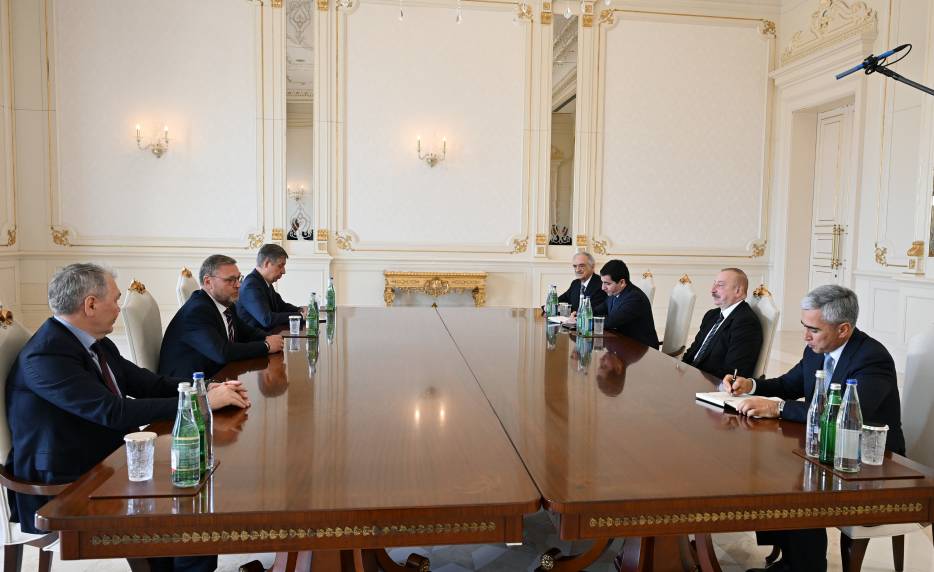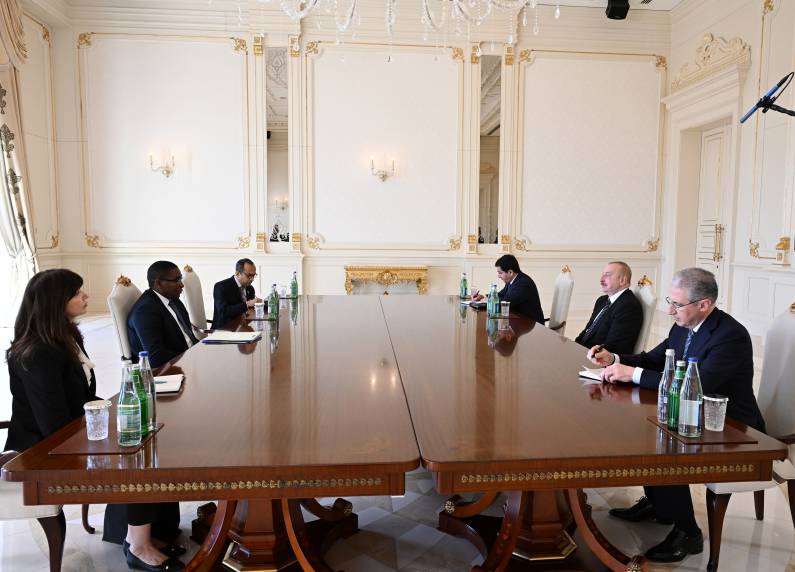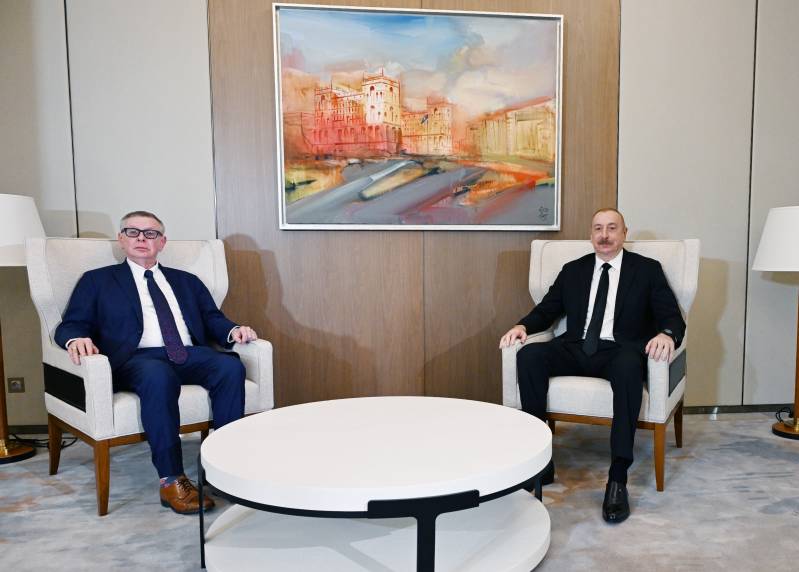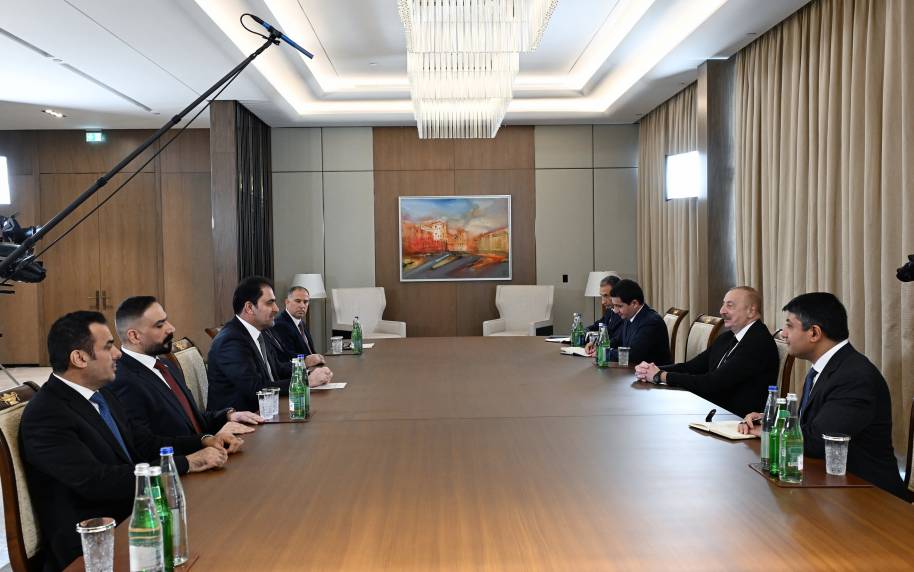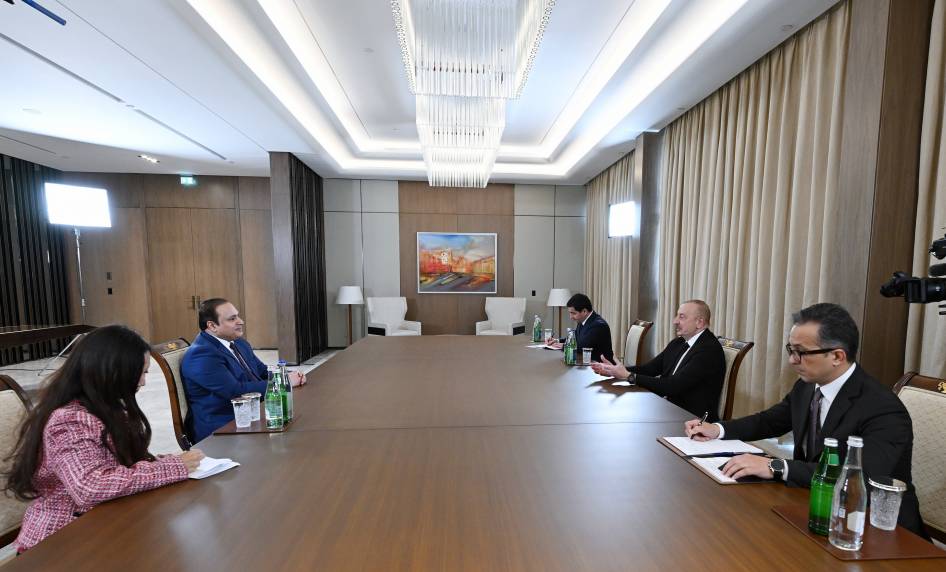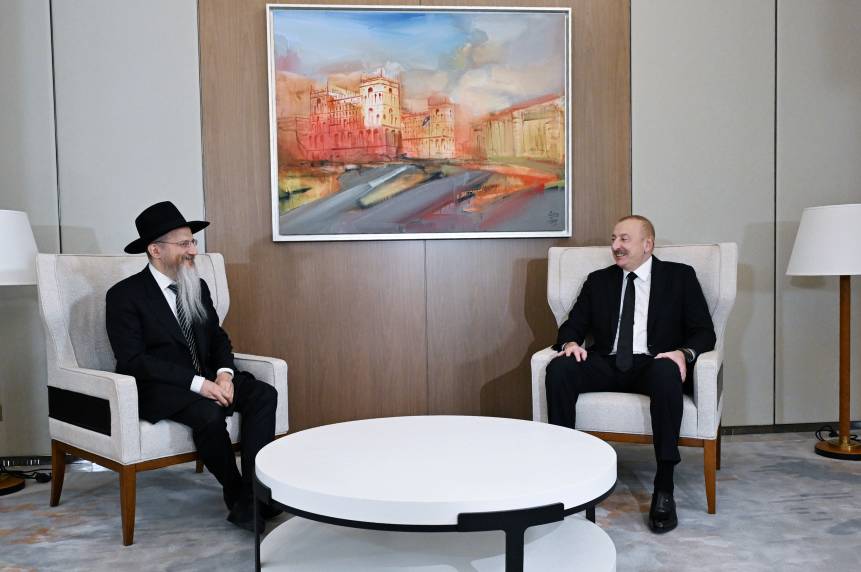Today's Zaman
Tuesday, November 09, 2010
Turkey and Azerbaijan are “one nation with two states,” and they will continue to deepen further cooperation in the political, economic and cultural fields despite the fact that some circles perpetuate lies of rift and contention between the two brotherly nations, a top Azerbaijani diplomat in Turkey has said.
n an exclusive interview with Today’s Zaman, Ambassador Faiq Bagirov emphasized that bilateral relations between the two neighboring countries are strong as ever, dismissing claims that there has been growing disenchantment between Ankara and Baku, especially over rapprochement with Armenia. “We have been assured at the highest level that Turkey would never jeopardize Azerbaijani interests in occupied territories in Nagorno-Karabakh, and all this is on the public record,” he said.
He stressed that the policies pursued by Turkey in accordance with efforts to increase regional peace, stability and prosperity are perfectly in line with Azerbaijani goals. “Although Azerbaijan has been exposed to Armenian aggression, Azerbaijan still pursues peaceful policies and contributes to regional peace and stability. [The] essence of our foreign policy strategy is about establishing good relations with neighboring countries, including Armenia, that are respectful of international law. We are saying that Armenia will benefit more if she will be respectful to international law and come to terms with Azerbaijan on these issues. They can be part of the regional projects … in the Caucasus. Turkey is saying the same,” he noted.
Although Turkey has recognized Armenia as an independent state, diplomatic ties are yet to be established between the two countries, and the Turkish-Armenian border has remained closed over the occupation of Azeri territories. Turkey signed two agreements in 2009 with Armenia regarding the improvement of diplomatic relations and the border issue but did not complete the ratification process because there has been no progress on the solution of the Nagorno-Karabakh issue.
‘Azerbaijan has no intention or right to intervene’
It had been widely speculated in the media that the protocols simply died because of Azerbaijan’s strong reaction to Turkey’s initiative to normalize relations with Armenia as part of their “zero problems with neighbors” policy. However, Azerbaijani ambassador to Turkey Bagirov rejects these speculations, saying this was never a point of tension between Azerbaijan and Turkey. “We have no right or intention to interfere with Turkey’s relationship with other countries.”
He underlined that everyone has to think about the reason for the border closure and lack of constructive change in the policies of Armenia. “Turkey and Azerbaijan have always been close allies. It would make us happy to see Turkey’s rapid growth and [its] becoming the most important actor in the region,” he added.
On the Nagorno-Karabakh issue, Bagirov pointed out that the problem could be solved through cooperation and increased dialogue. “Some regions in Azerbaijan have been illegally occupied, and it is obvious that Armenian militias and security forces are behind this occupation. This is a serious problem for us, and we are willing to settle this problem through peaceful methods,” explained Bagirov. The ambassador also stated that Azerbaijan is calling upon the United Nations, the Organization for Security and Co-operation in Europe (OSCE) and other international organizations to put pressure on Armenia in order to end the occupation of the territories.
There have been intensified efforts by the international community to settle the dispute though they have not yet borne fruit. On Oct. 27 President Ilham Aliyev of Azerbaijan and President Serzh Sarksyan of Armenia met in the southern Russian city of Astrakhan for a meeting hosted by Russian President Dmitry Medvedev to discuss ways to resolve the dispute over the region. During the talks the leaders agreed to exchange prisoners of war and the bodies of war victims. After the meeting, President Medvedev said he hoped that a peace deal could be reached by early December, in time for the OSCE meeting that is set to take place in Kazakhstan on Dec. 1-2.
The Turkish Foreign Ministry has since expressed its support for the trilateral meeting in Russia, stating that “Turkey hopes that the Astrakhan Summit will make positive contributions to the solution process by adding momentum to the efforts to resolve the upper Karabakh dispute.”
In his interview, the ambassador stressed the importance of high-level visits to boost political and economic dialogue between the two countries. President Abdullah Gül paid a visit to Baku in August, where he and Aliyev signed an agreement on “Strategic Partnership and Mutual Support.” In September, President Aliyev and Turkish Prime Minister Recep Tayyip Erdoğan signed an agreement in İstanbul establishing a Turkey-Azerbaijan High-Level Strategic Cooperation Council.
The strategic cooperation council is the ultimate mechanism to fast-track economic, political and other ties between the two countries, engaging key cabinet-level ministers in close dialogue to sort out all kinds of bureaucratic problems. “These key agreements and frequent high-level mutual visits will further contribute to the improvement of the relationship between the two countries,” Bagirov stated.
The Azerbaijani diplomat also pointed out that the trade volume between Turkey and Azerbaijan has been growing steadily over the years. He acknowledged that the global economic recession had its effect on the figures, resulting in a 17 percent decrease in the total trade volume between 2008 and 2009, but argued trade was impacted less when compared to other countries. “Both Turkey and Azerbaijan did survive this crisis in much better shape, in sharp contrast to other economies, and as such the effect was less felt in our trade ties,” he stated.
According to the Turkish Statistics Institute (Turkstat), imports from Azerbaijan totaled $930 million in 2008 and dropped to $750 million 2009, while its exports totaled $1.7 billion in 2008 and were scaled back to $1.4 billion 2009. However, figures from 2010 indicate that there is strong bounce back on the trade numbers. For the last nine months ending in September over the same period last year, there has been an 11 percent increase in imports and 12 percent increase in exports, with imports totaling $625 million and exports totaling $1.1 billion.
Among the goods Turkey exports to Azerbaijan are food, textiles, construction materials, communication products, electronics, automobiles and raw materials such as plastic, synthetics and thread. The largest GSM operator in the country is owned by Turkish entrepreneurs, who are also very active in the banking and transportation sectors.
Deeply invested in each other’s economies
Ambassador Bagirov sounded upbeat with the year-end figures, saying that he “was sure that the trade volume will fairly exceed $2 billion by the end of 2010.” Turkey and Azerbaijan are deeply invested in each other’s economies as they invest in varying industries. He floated the idea that companies from both countries can cooperate very closely in third country markets.
“For example we can join our expertise and financial resources to boost our standing in construction and energy projects in other countries,” he suggested. He also noted that there should be increased efforts to enhance the share of non-energy products in mutual trade.
In June Turkey and Azerbaijan signed three natural gas supply deals during the third summit of the Conference on Interaction and Confidence-Building Measures in Asia (CICA). At the conference, both parties came to an agreement on the shipment of natural gas from Azerbaijani’s Shah Deniz field to Turkey.
In accordance with the agreements, Turkey will import up to 12 billion cubic meters of gas annually. The deal also set the terms for the transit of Azerbaijani gas to European countries and addressed price adjustments for gas in Turkey. The agreements were highly anticipated, as it took 39 negotiating sessions for both parties to come to a conclusive deal. The long-awaited agreements were signed by Turkish Energy and Natural Resources Minister Taner Yıldız and Azerbaijani Industry and Energy Minister Natiq Aliyev.
Turkey and Azerbaijan have been actively working to realize major pipeline, railway and roadway projects connecting the two countries to major markets in Europe as well as the Far East. “These projects when completed will transform the region into a major hub, and it will benefit both countries as well as neighboring ones,” the Azerbaijani ambassador said, warning Armenia that it has been missing out on these deals because of the illegal occupation it has maintained in the region.
The Baku-Tbilisi-Ceyhan (BTC) crude oil pipeline and Baku-Tbilisi-Erzurum natural gas pipeline projects are concrete indicators of the cooperation between the two countries in the field of energy. Construction of the Baku-Tbilisi-Kars railway line, which started in 2008, is in progress and it is expected to be completed in 2012. Both countries are also working on feasibility studies to construct a major highway connecting the Caucasus to Europe in the West and to the Asia in the East.
The cultural and educational exchange between the two countries is also on the rise, says the Azerbaijani ambassador.Currently, according to the Turkish Higher Education Board (YÖK), most international students studying in Turkey come from the Turkish Republic of Northern Cyprus (KKTC) and Azerbaijan, followed by Bulgaria, Turkmenistan, Iran and Mongolia.
While thousands of Azerbaijani students have received their degrees from Turkish universities in Turkey, many more are attending schools and universities built by Turkish entrepreneurs in Azerbaijan as well. Turkish high schools and the Turkish Caucasus University have become popular institutions in the country and earned much recognition from Azerbaijani leaders. Former President Haydar Aliyev had described the success of the Turkish schools as “a legendary triumph.” Ambassador Bagirov says they appreciate these schools and the opportunity to learn from the best Turkey can offer in many fields, including education.
Link to article

